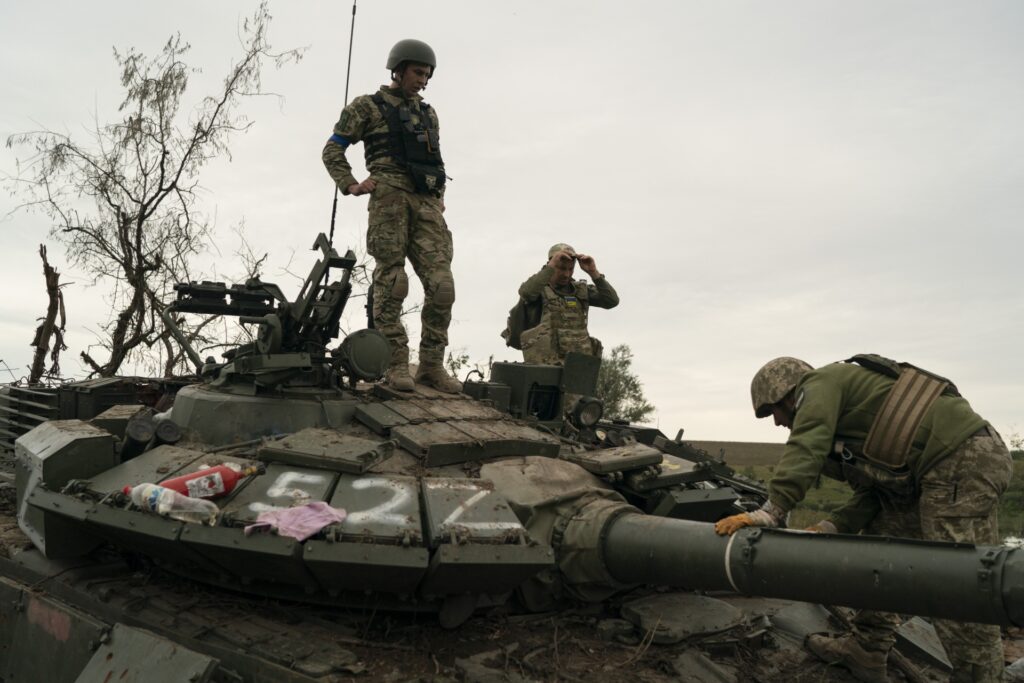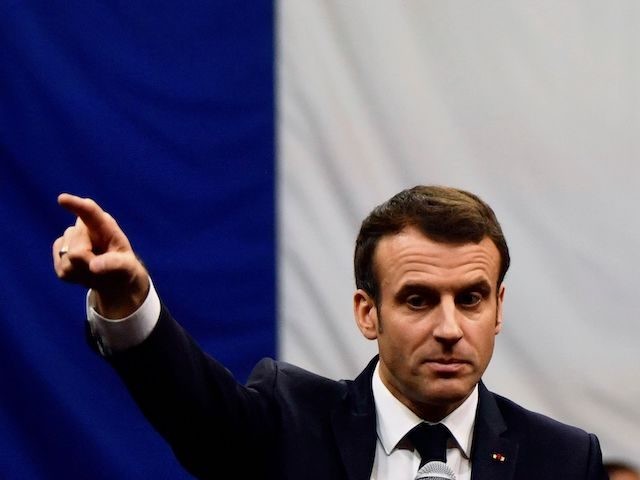French President Emmanuel Macron spent much of his address to the 77th United Nations General Assembly criticizing Russia for invading Ukraine, an act of aggression he blamed for destabilizing the post-World War II international order and exacerbating humanitarian crises around the world.
“On the 24th of February this year, Russia, a permanent member of the Security Council, through an act of aggression and invasion and annexation, broke our collective security. It deliberately violated the U.N. Charter and the principle of sovereign equality of states,” Macron said.
The French president was exasperated that any nation could defend Russia’s actions or remain neutral as Ukraine fights for its existence.
“There are Russian troops in Ukraine, and as far as I know, there are no Ukrainian troops in Russia,” he said, scoffing at the notion of equivalence between the two combatants.
Macron said the Russian invasion has “paved the way for other wars of annexation in Europe today, and perhaps tomorrow in Asia, or in Africa, or in Latin America.”
He warned a “return to the age of imperialism and colonies” could be imminent, if Russia claims victory.
Macron defended Western nations for giving military support to Ukraine, so its people can “enjoy their legitimate right to defense and preserve their sovereignty.”
Conversely, he said Russian officials should be granted no “impunity” for “war crimes committed in Ukraine.”

Ukrainian servicemen stand atop a destroyed Russian tank in a retaken area near the border with Russia in Kharkiv region, Ukraine, Saturday, Sept. 17, 2022. (AP Photo/Leo Correa)
Macron urged Russia to make a peace deal as soon as possible and to allow such safety measures as IAEA protection of Ukraine’s nuclear power plants until hostilities are concluded.
“Russia must now see that it cannot impose its will militarily, even if there are fake referenda in territories that have been bombed and occupied. It is up to the members of the Security Council to say this loud and clear, and to the members of this assembly to support us on our path to peace,” he said, alluding to reports that Russia may attempt to absorb the border region of Ukraine by referenda, as a consolation prize after failing to topple the Ukrainian government.
One of the few hints of nuance he offered in a largely one-sided critique of Moscow was his concession that Ukraine must come to the negotiating table and make a serious effort to work out a durable peace.
“A negotiation can only be possible if sovereign Ukraine wants it, and Russia accepts it in good faith,” he said.
Macron was utterly exasperated with nations that are making the “historic error” of remaining neutral on the Russian invasion — a critique that would seem largely directed at China. He did not call Beijing out by name, but much of his disdain for neutrality involved paraphrasing statements made by Chinese officials.
“There is a risk of dividing the world that is at stake here, with the direct and indirect impact of the conflict,” he argued. “Those who are keeping silent today are complicit with the cause of a new imperialism, a new order.”
“Who here can defend the idea that the invasion of Ukraine justifies no sanctions? Who of you here can consider the day when something similar, with a more powerful neighbor, happens to you? Will there be silence from the rest of the world? Who can say that’s the best solution? Who can believe that Russia just has to win this war for us to move on to something else? Nobody can believe that,” he scoffed.
Macron pointed to Russia’s attack on Ukraine as an example of dangerous “hybrid modernized war,” which “uses energy prices, food insecurity, nuclear safety, access to information, and population movements as weapons for division and destruction.”
Macron warned the suffering caused by natural disasters in places like Pakistan, the horn of Africa, Somalia, Yemen, South Sudan, and Afghanistan has been greatly exacerbated by the economic damage and supply disruptions from the Russian invasion.
“Famine is coming back,” he said, venting his fury at Russia for interfering with grain shipments and weakening Europe’s economies at a moment when Europe needs funds, energy, and fuel to assist the developing world.
Like almost every speaker at the General Assembly, Macron turned to climate change and demanded more funding and international cooperation, running through a long list of programs France enthusiastically supports. Unlike most of the others, he was willing to direct a little criticism at China for its rapacious use of coal power.
Macron said China and “the great emerging powers” — which would largely consist of China’s client states in its Belt and Road Initiative (BRI) — must “make a clear decision” to turn away from coal power at the COP21 climate conference. BRI “infrastructure” projects have included a large number of coal-fired power plants in developing nations.
On the other hand, Macron insisted “wealthy nations” must make even more sacrifices to give regions like sub-Saharan Africa time to develop their own electrical generation capacity, even if that project includes some greenhouse gas emissions. He also called on advanced nations to give their expensively-developed “renewable energy” technologies to the developing world.

COMMENTS
Please let us know if you're having issues with commenting.